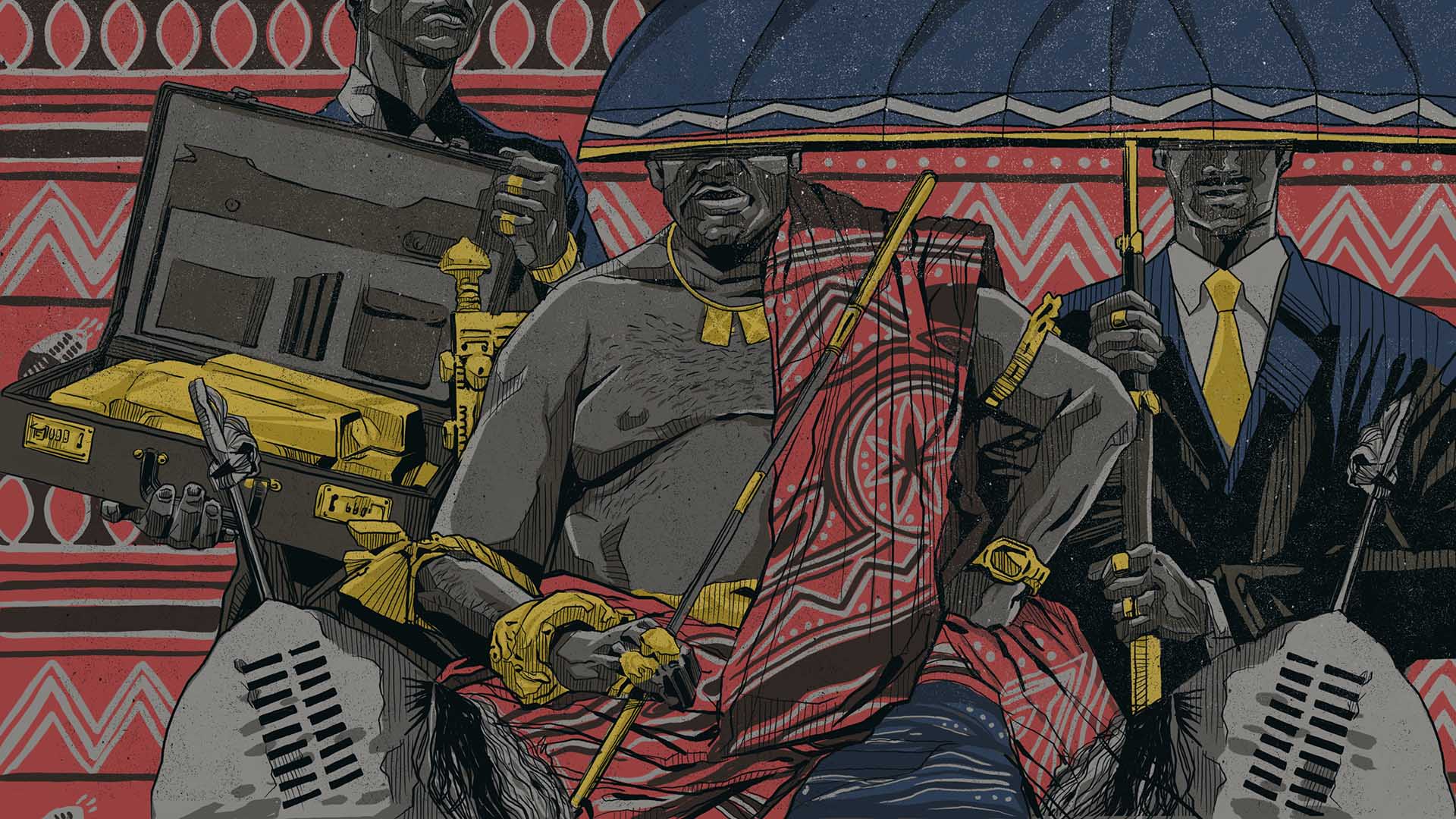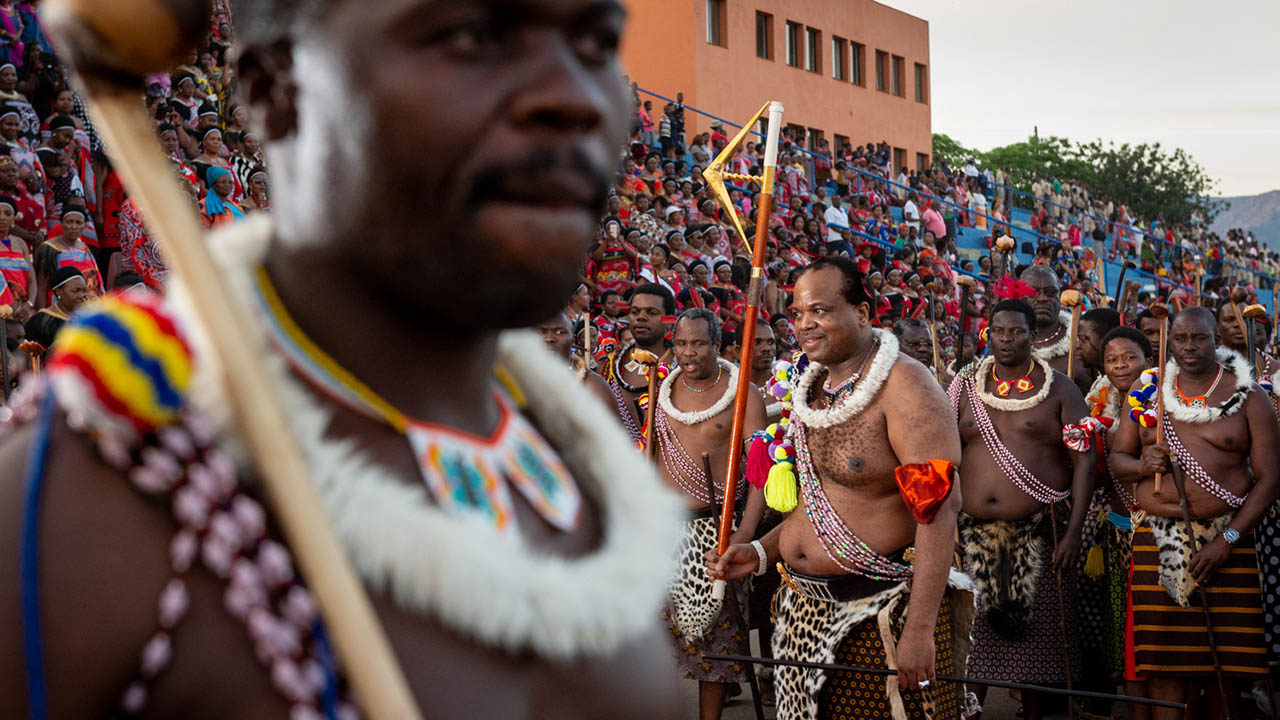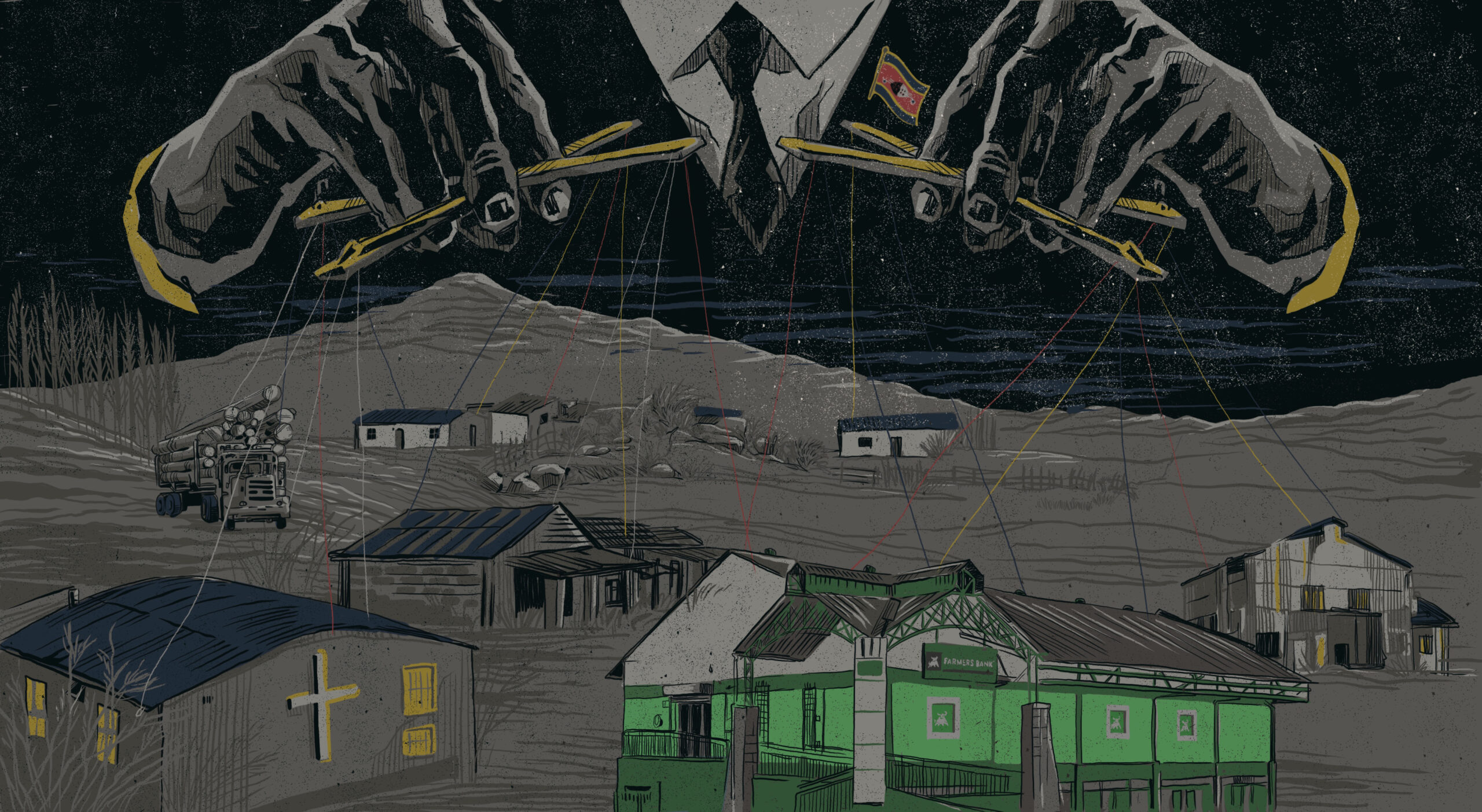SWAZI SECRETS
Millions in suspicious transactions tie South Africa’s ruling party to a controversial Swazi archbishop, documents show
As the African National Congress heads into a consequential election, a trove of leaked financial records carries echoes of past corruption scandals.
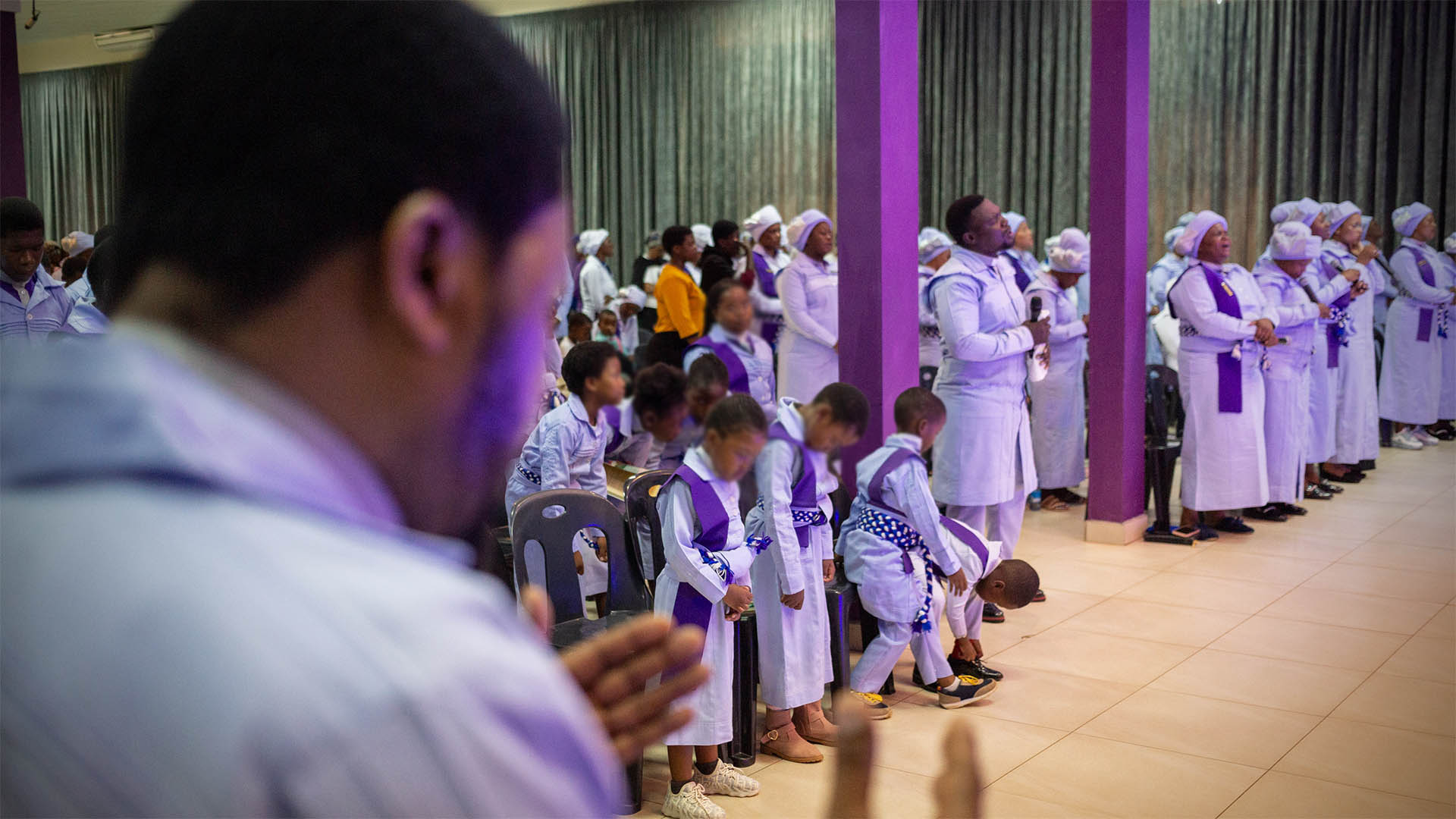
On a cloudy Sunday morning in March 2024, congregants poured into the main branch of All Nations Christian Church in Zion, in a field just off the highway between Mbabane and Manzini, the kingdom of Eswatini’s two largest cities. There are several branches of the church across South Africa and Eswatini — which until 2018 was known as Swaziland — and this building, whose construction began in 2017, is pure utilitarianism. It is a cavernous warehouse of a structure without adornment, made to accommodate its sizable membership.
Churchgoers in All Nations’ signature purple outfits swayed and spoke in tongues as they were led in animated prayer by a church leader. Off to his side stood self-proclaimed Archbishop Bheki Lukhele, the church’s patriarch, surrounded by a coterie of bodyguards, his hands raised to the heavens.
Lukhele, whose full name is Rebios Bheki Sigaca Lukhele, is a prominent religious figure in a country that is roughly 90% Christian. About 40% of the population, including Lukhele, is part of the Zionist Christian denomination, a blend of Christianity and traditional Swazi rituals and ceremonies. The 49-year-old is not just a religious leader, though. As the president of Eswatini Premier League soccer club Mbabane Swallows — and, as local media put it, the club’s “financial muscle” — Lukhele has forged a career that encompasses both Eswatini’s most popular religion and its most popular sport.
Still, as a religious leader, Lukhele has led a life of some controversy, with media reports homing in on his lavish lifestyle. The fact that he is also a polygamist has drawn criticism and prompted the association of Zionist churches in Eswatini — known as the League of Churches — to publicly state its opposition to church leaders having multiple wives. In 2019, a group of Lukhele’s supporters allegedly assaulted a Swazi journalist who was looking into sex abuse allegations against Lukhele. The journalist lodged a complaint with the police, but the case went nowhere.
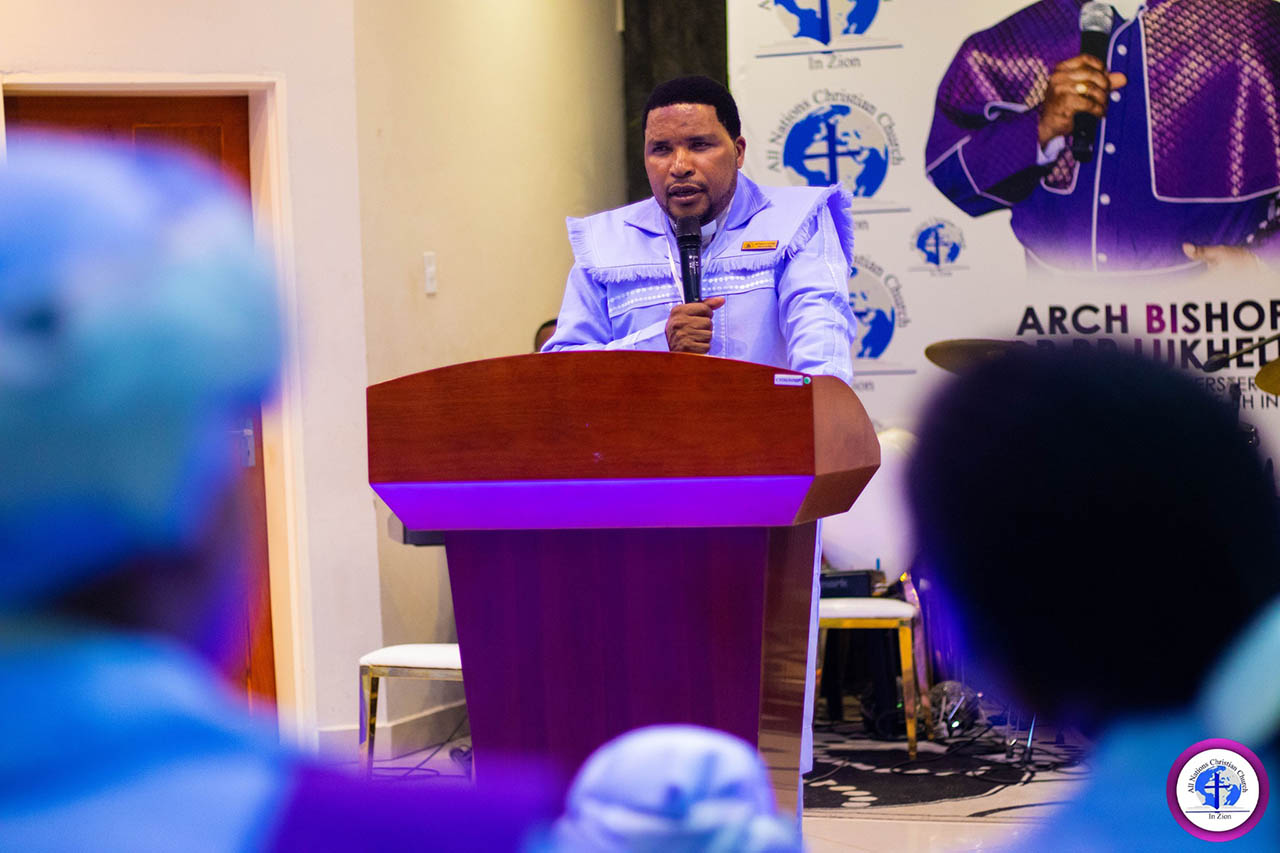
While those incidents have been public, less known is that a steady stream of suspicious financial transactions — in the millions of dollars — has coursed through a network of politically connected people and companies in South Africa and into the bank accounts of Lukhele and his church, which is registered as a nonprofit. The transactions were revealed in the Swazi Secrets investigation, led by the International Consortium of Investigative Journalists, based on a leak of hundreds of thousands of documents. These funds connect the so-called archbishop and his church to Sibusisiwe Mngomezulu, Eswatini’s ambassador to Belgium and the European Union and a brother-in-law of Eswatini’s king, Mswati III. Mngomezulu has ties to South Africa’s governing party, the African National Congress, through the party’s funding arm. He is also a business partner with the party’s chief financial officer, Bongani Mahlalela, who was involved in these transactions as well.
The details of these money flows are contained in a massive leak of documents from the Eswatini Financial Intelligence Unit (EFIU), an independent oversight body that provides financial intelligence to Eswatini authorities (and before that, Swazi authorities) to prevent money laundering and other illicit financial activity. To do this, the EFIU receives reports of suspicious financial transactions from the banks that it oversees. It also conducts its own investigations with regional counterpart organizations.
Distributed Denial of Secrets, a U.S.-based nonprofit devoted to publishing and archiving leaks, obtained more than 890,000 leaked documents from the EFIU and shared them with ICIJ and seven media partners as part of our Swazi Secrets investigation.
Documents from the leak show that the stream of suspicious transactions, spanning several years, included money that originated with the ANC. One of ICIJ’s partners on the Swazi Secrets investigation, the amaBhungane Centre for Investigative Journalism in South Africa, identified several additional links between the suspicious transactions and the ANC and senior party leaders. Once in Lukhele’s accounts, the money was used to buy residential and commercial properties, mostly in Eswatini, and vehicles including a bus, trucks and luxury cars, or it was sent to a range of beneficiaries. Some of those beneficiaries were unremarkable, such as gospel artists, but others were members of Eswatini’s Parliament, the then-mayor of the capital Mbabane and former deputy prime minister Themba Masuku.
Previously known as Swaziland, Eswatini is a landlocked African country between South Africa and Mozambique. It’s the last absolute monarchy in Africa and the king, Mswati III, rules by decree.
In 2018, Mswati III unilaterally changed the country’s name.
Eswatini is home to 1.2 million people and its economy is heavily dependent on its larger neighbors. Unemployment is high: Nearly 60% of Swazis under 25 are out of work. And, at 53 years as of 2021, life expectancy for men was among the lowest in the world. For women, it was 61 years. Those poor health outcomes are driven by the world’s highest prevalence of HIV among adults: Around 26% of the adult population is living with HIV.
The EFIU seemed unable to determine why such large amounts of money were being sent to Lukhele or what role the ANC and senior figures associated with the party played. But it ultimately suspected that Mngomezulu and his business partner, Mahlalela, were “siphoning” money from the party and hiding it in Eswatini with the help of Lukhele, or that the party was somehow complicit and that Mahlalela was concealing money on the party’s behalf.
The ANC did not answer detailed questions put to it by ICIJ’s partner, amaBhungane, about the suspicious money flows to Lukhele, but a spokesperson said in an emailed statement dated April 17 that it had “not been informed of any investigation by South Africa’s Financial Intelligence Centre (FIC) or the Eswatini Financial Intelligence Unit (EFIU) into any transactions involving accounts of the ANC.”
“The ANC will be getting to the bottom of this issue, and will without any hesitation take appropriate action should any incidences of wrongdoing be established,” the email continued. “To this end, the ANC will undertake a thorough investigation to establish the veracity of the claims.”
Lukhele did not respond to questions for the Swazi Secrets investigation.
On May 29, the ANC will compete in its most hotly contested election since coming to power in 1994 under President Nelson Mandela, at the dawn of democracy in South Africa. From its 2004 peak, when it won over two-thirds of the vote, the party’s support has steadily eroded — a decline partly attributed to the widespread perception that the ANC is endemically corrupt. For the first time since it was elected, the party faces the prospect of dipping below 50% of the vote and being removed from power or forced to form a coalition with smaller parties.
Opposition parties have made corruption a focal point of their campaigns, and although current ANC leader and South African President Cyril Ramaphosa says he has made the fight against corruption a priority, the opposition claims he has done too little. As voters head to the polls, the issue could well be a top concern. For many, new details of potentially illicit transactions involving the party could reinforce concerns about systemic corruption within the party.
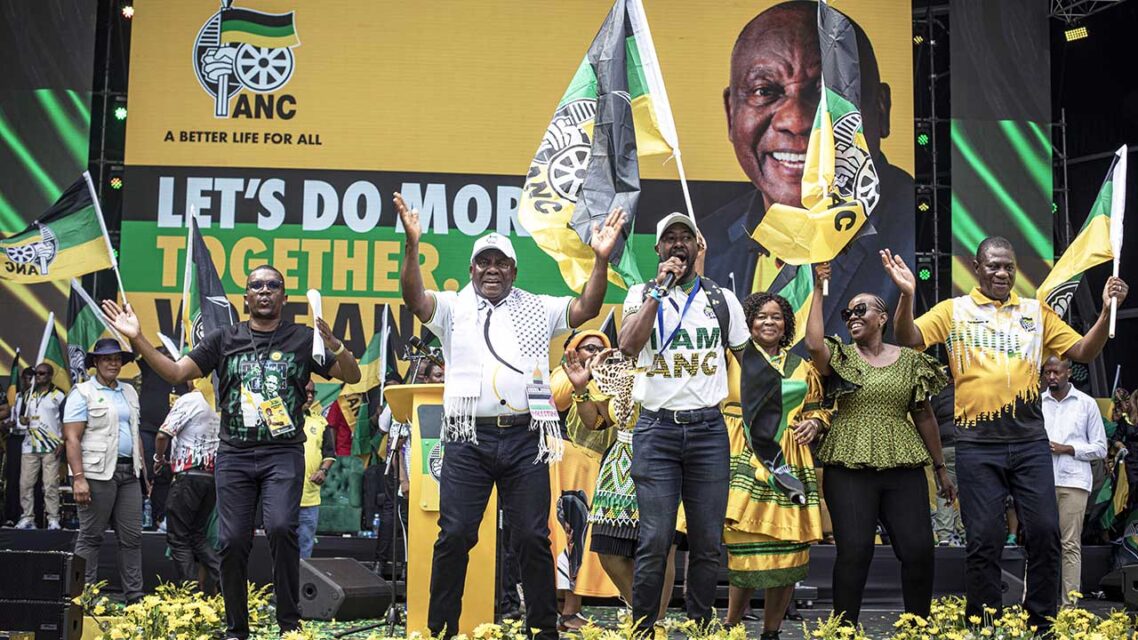
Intertwined economies
The ANC is the oldest liberation movement in Africa and has historical ties to South Africa’s neighbor, Eswatini, the former Swaziland — a tiny, landlocked monarchy of 1.2 million people. From the mid-1970s, Swaziland became a key base for the ANC in exile, providing refuge for underground party members and other anti-apartheid activists fleeing South Africa or attempting to infiltrate the apartheid state.
“I think the key thing is that Swaziland, as it then was, provided quite a lot of help to the ANC during the struggle against apartheid,” said Andrew Feinstein, a former ANC member of Parliament who resigned in 2001 over the party’s handing of a probe into a multibillion-dollar arms deal.
“There were key ANC people who were based in Swaziland and were protected by the Swazi state,” Feinstein told ICIJ. “And when people needed to get out of South Africa very quickly they would often use Swaziland as their route out of the country.”
One prominent ANC figure who was exiled in Swaziland was former South African president Jacob Zuma. His links to Eswatini’s royal family run deep. In 2002, when he was deputy president, Zuma paid a “bride wealth” of 10 head of cattle to begin negotiations with the royal family to marry Princess Sebentile Dlamini. Although the marriage was never finalized, his son and nephew both married into the royal family.
Eswatini is economically intertwined with, and heavily dependent on, South Africa, the regional economic powerhouse. Of the four commercial banks operating in Eswatini, three are South African.
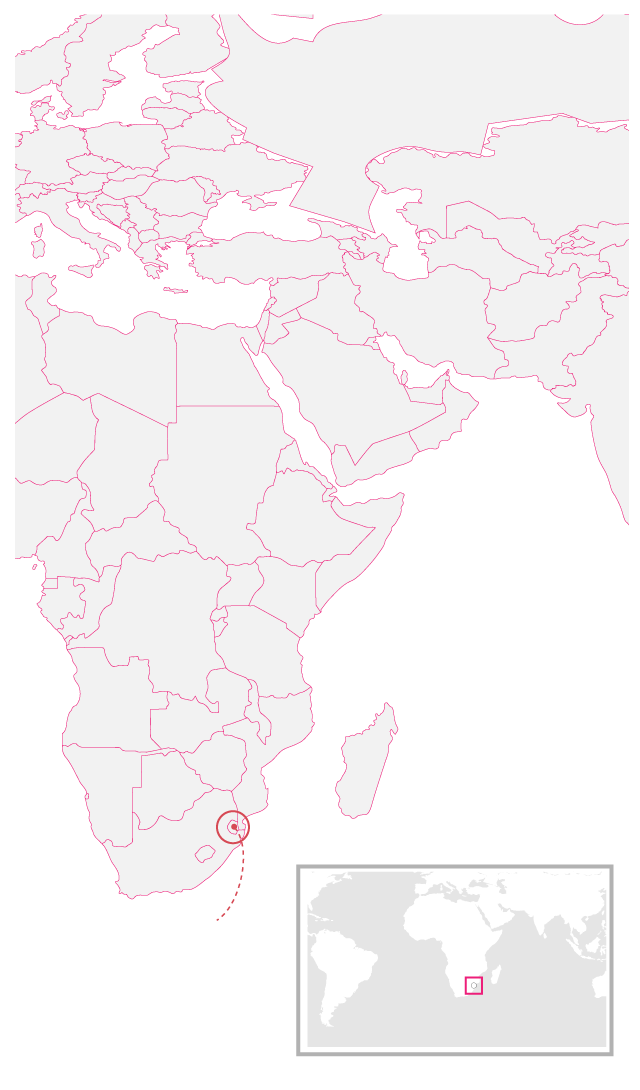
Argelia
Saudi Arabia
India
Tanzania
Angola
Madagascar
South Africa
Eswatini
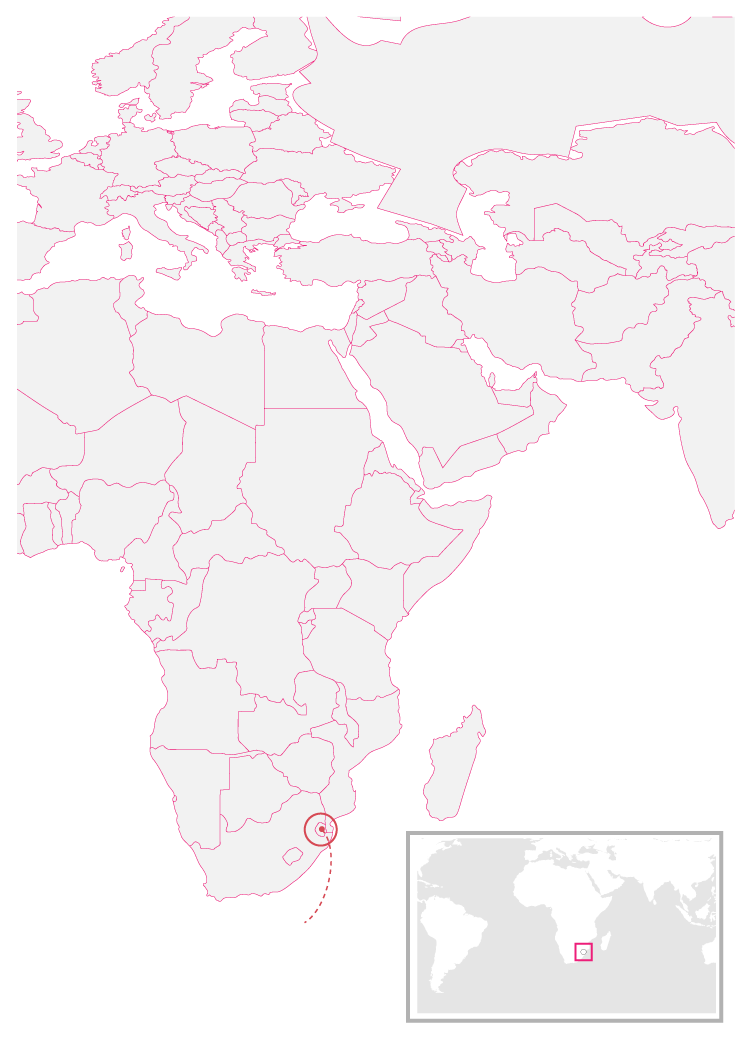
Argelia
Saudi Arabia
India
Tanzania
Angola
Madagascar
South Africa
Eswatini
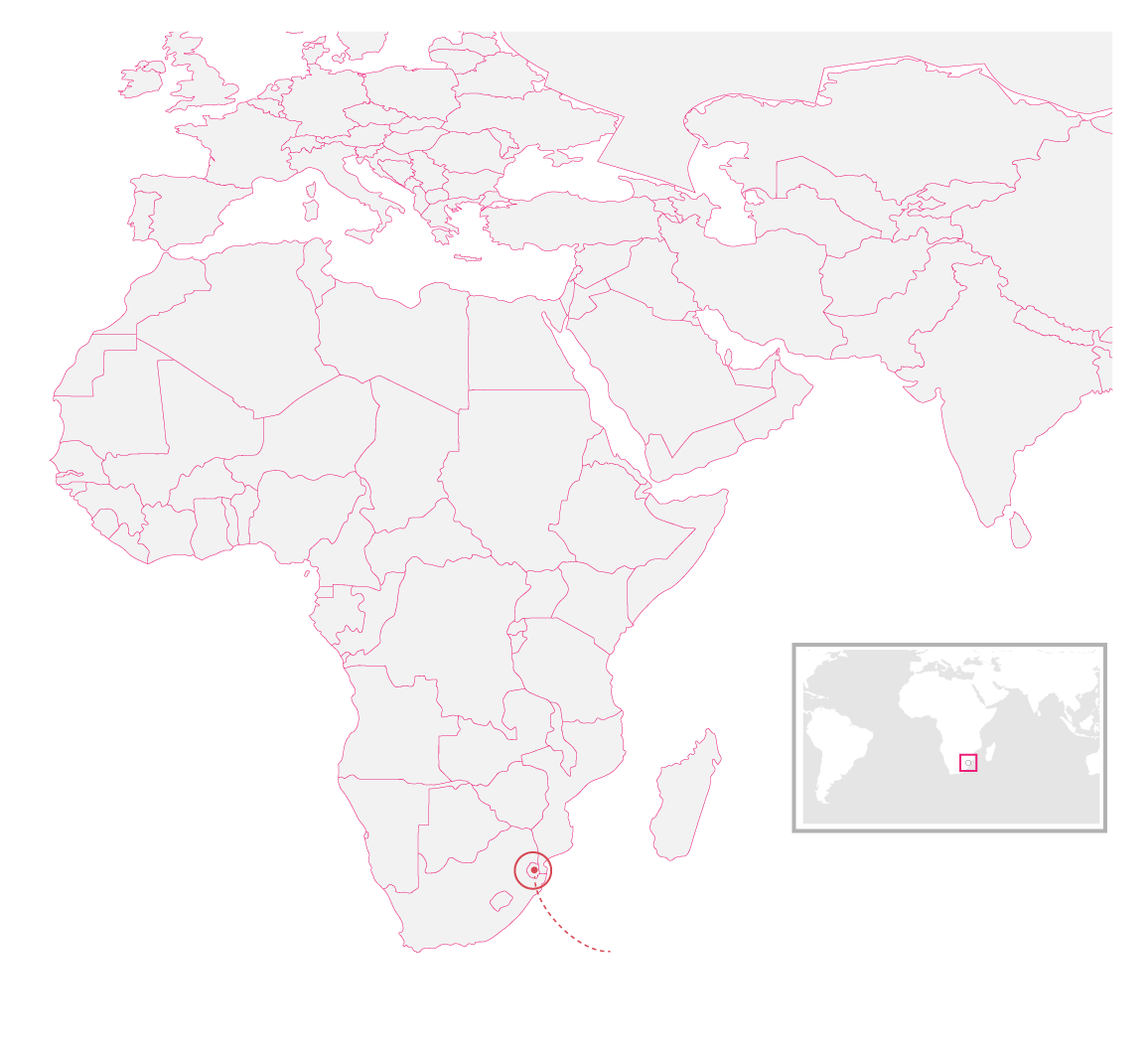
Argelia
Saudi Arabia
India
Tanzania
Angola
Madagascar
Eswatini
South Africa
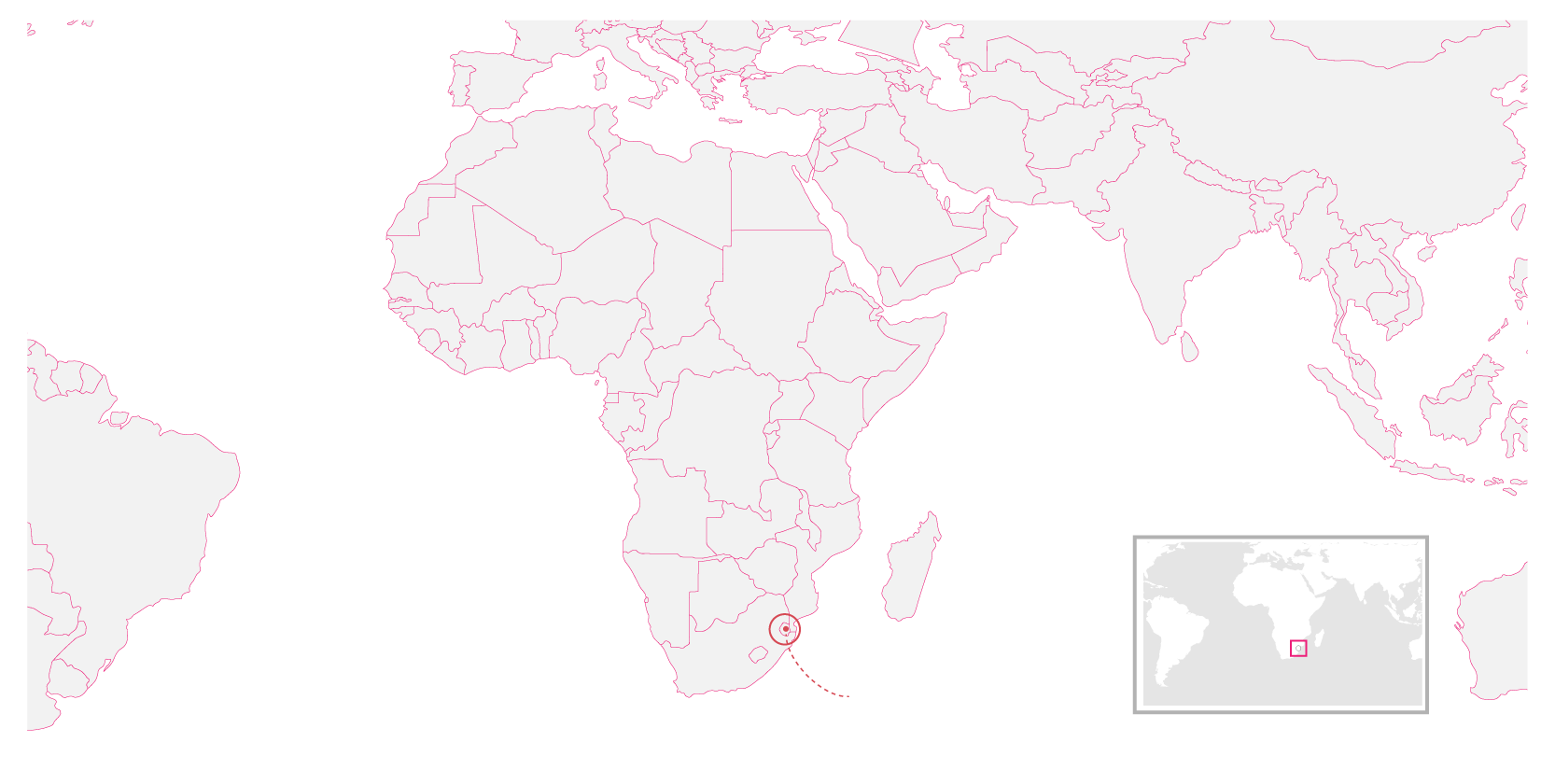
Argelia
Saudi Arabia
India
Tanzania
Brasil
Angola
Madagascar
Eswatini
South Africa
Lukhele held accounts at the Eswatini arm of one of those South African banks, First National Bank of Eswatini (FNB). Around 2019, the year he became president of the Mbabane Swallows soccer club, Lukhele started to become something of a household name in Eswatini. His massive, warehouse-like church had just been built, and he was a regular subject of local news reports.
One such report from Swaziland News in January 2019 asked how the “now powerful and highly influential Bishop of the All Nations church” obtained his millions. The story mentioned rumors of Lukhele having bought buses for his church with cash and accusations of “converting” other pastors to his church by buying their support. The EFIU found that, in fact, Lukhele made payments to “famous pastors” and various motor vehicle companies.
“If assisting someone who is in need who later takes his own decision to join my church is buying a church, then we can say I am buying churches,” Lukhele told the publication. “Normally, when a Pastor asks for financial assistance, I assist where I can, then it becomes his decision to join my church. I have assisted many church leaders in the country who are still running their own churches.”
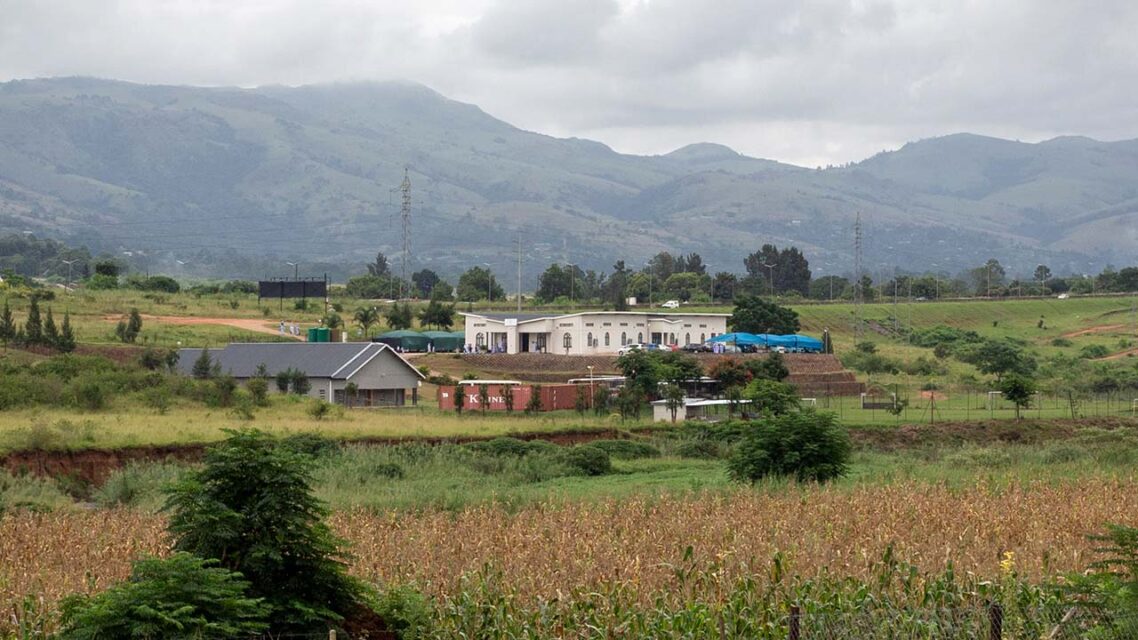
Explaining his wealth, Lukhele went on to say that he had shares in various companies locally and internationally, according to the article, and that his money was “clean” and “traceable.” He also said he has apartments in South Africa and Eswatini that he rents out.
By the time the article was published, Swazi authorities were already monitoring Lukhele. Documents from the Swazi Secrets leak show that as early as 2017, during Zuma’s presidency in South Africa, the Eswatini police had been alerted to suspicious activity in Lukhele’s accounts.
In February 2018, the EFIU informed the Swazi Revenue Authority of a series of suspicious transactions involving Lukhele. The EFIU flagged the church leader after several obscure South African companies paid “huge” amounts of money into his personal checking account. Between April 2017 and February 2018 — the month Zuma was compelled by his party to step down as president in favor of Ramaphosa — Lukhele’s account received over $3.9 million from various sources, including $3.1 million in payments labeled with the names of six South African companies, according to the EFIU’s review. The EFIU noted that “as soon as these companies receive money they then immediately transfer the exactly [sic] amount or slightly below to the subject [Lukhele’s] personal account.”
Lukhele’s bank, FNB, later reported to the EFIU that some of the transactions paid into the South African companies’ accounts were labeled “ANC” and “Bongani Mahlalela” — the political party’s CFO. A separate analysis by ICIJ showed that “Mahlalela” also appears in the description of many payments made to Lukhele, although it’s not clear whether those payments are related to the CFO.
One of the South African companies paying Lukhele was 2nd Thought Communications, which transferred more than $1 million to one of Lukhele’s personal accounts in 2017 alone, an ICIJ analysis of bank statements shows.
2nd Thought was registered as a private company with two owners. One of those owners, Craig Coglin, is a friend of Mngomezulu’s and Mahlalela’s. Neither Coglin, Mahlalela nor Mngomezula responded to requests for comment sent by amaBhungane.
Bank statements for 2nd Thought that were obtained by amaBhungane and cover most of the banking activity between late 2016 and early 2021 show that the company was linked to the ANC. Descriptions of payments suggest that 2nd Thought was being paid for services it performed for the party. But the statements also show a pattern of other regular payments in large round amounts, paid into 2nd Thought’s account and immediately transferred to Lukhele. At least $1.4 million was sent to Lukhele this way. The descriptions of several of the incoming payments, such as “registered trustees of the Afr” – a likely reference to Registered Trustees of the African National Congress, a little-known body within the ANC – suggested a link to the ANC.
Other companies channeling money to Lukhele’s accounts included a private company whose bank account number appeared in court records obtained by amaBhungane among a list of service providers for an ANC election campaign.
At first, the EFIU said it suspected that Lukhele was a director or shareholder of the South African companies and was using his personal account “for business purposes” to evade tax. But as more information on Lukhele and the money moving through his accounts came to light, the EFIU’s suspicions grew deeper.
ANC corruption and ‘the morality of the party’
In April 2018, Lukhele opened a bank account with FNB for “All Nations Christian Church.” Two months later the volume of transactions had risen dramatically, according to a report FNB filed the following year with the EFIU.
Around the same time, the flow of funds going into the accounts Lukhele controlled started changing. Increasingly, instead of being routed directly through the South African companies and sent to Lukhele’s All Nations Christian Church account in Eswatini, the money from South Africa was first deposited into an account held by Mngomezulu — the payments labeled with the names of the South African companies, according to the report that FNB filed with the EFIU.
Mngomezulu is the brother of one of King Mswati’s wives, Inkhosikati Lambikiza, in addition to being the kingdom’s ambassador to Belgium and the EU. He is also a director, alongside Mahlalela, of two South African companies. South African media have described Mngomezulu as the “finance and business development executive” of Chancellor House, an ANC funding vehicle that has had financial interests in Eswatini. Some of the payments to Mngomezulu, the EFIU found, “could be traced back to African National Congress Elections Fund Account.”
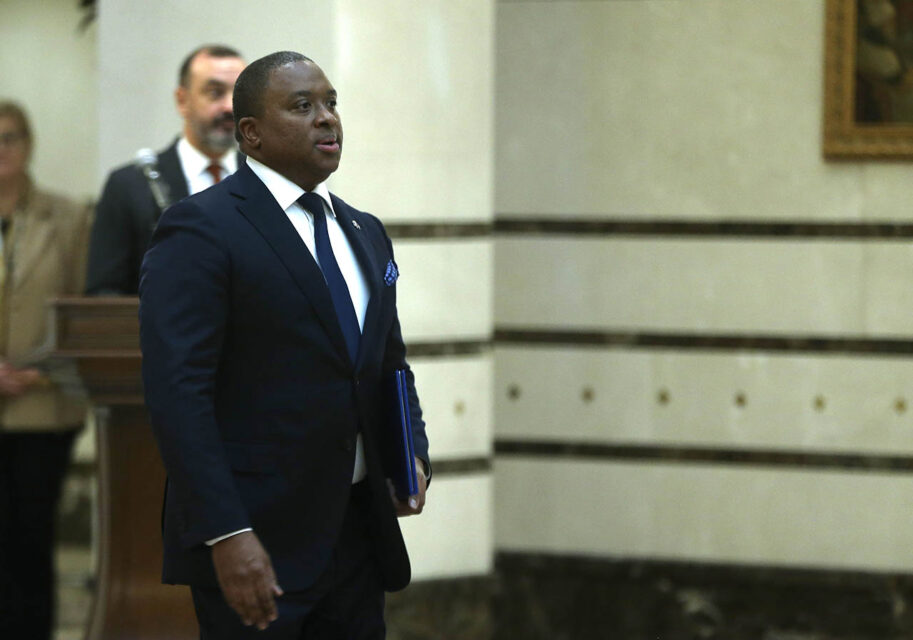
According to the EFIU, the payments from the ANC to Mngomezulu were “made to appear like they are going to different companies like XGM Trading and Projects” instead of Mngomezulu. Online credit records show that Mngomezulu listed “XGM Consulting” as one of his employers, in addition to Chancellor House Holdings.
In a brief conversation with ICIJ partner amaBhungane this past February, XGM’s director, Mduduzi Shongwe, acknowledged paying recipients in Eswatini and said the payments were “above board” and were either to pay service providers or to give money to friends. After initially agreeing to meet amaBhungane for an in-person interview, Shongwe changed his mind.
Mngomezulu’s account also received more than 100 payments that bore descriptions mentioned in FNB’s report to the EFIU: “Figlen, Leferane, Moerane, AT NET, IEPS.” Those payments “were transferred to Mr R Lukhele within a short succession of receipt as well caring [sic] the reference “Church Building,” the bank wrote. These were examples of additional ties to the ANC. AmaBhungane linked the companies AT NET, Leferane and Figlen to the ANC’s regional treasurer in Johannesburg — South Africa’s largest city — who was briefly also that city’s mayor.
FNB reported to the EFIU in 2019 that it had reason to believe that at least four of the South African companies funneling money to Lukhele were “front” or “shell” companies “where there was no other significant activity in the companies’ accounts beside [sic] receiving funds … and transferring them to the client [Lukhele] within a short succession of receipt”.
An EFIU report stated that “once the funds are in Mr Mngomezulu’s account, he will transfer some to Mr Lukhele Platinum Account and some to [Lukhele’s] All Nations Christian Church Business Account in Eswatini.”
The EFIU wrote that Lukhele’s Platinum Cheque Account received over $5.5 million from October 2017 to January 2019, mostly in electronic payments from the South African companies.
[Churches] do not have financial controls, they very rarely have any form of internal audit, and they are subject to less rigorous control and often [have] exemptions … and so this does attract criminals, money launderers.
— forensics expert Steven Powell
An ICIJ analysis confirmed that the account of Lukhele’s church received over $4 million between April 2018 and March 2019, more than $3 million of that coming from Mngomezulu.
Steven Powell, director of forensics at the law firm ENS Africa, told ICIJ that “generally, churches across the globe are challenged in terms of financial governance and have limited accounting resources. They do not have financial controls, they very rarely have any form of internal audit, and they are subject to less rigorous control and often [have] exemptions as well because of the religious status of the entity, and so this does attract criminals, money launderers.”
Between 2018 and 2020, Lukhele also made payments to Themba Masuku, both before and during his time as Eswatini’s deputy prime minister. Masuku’s statements show he received at least $6,600 directly from Lukhele over this period. In 2018, Lukhele also made large payments totalling more than $206,000 to Howe, Masuku, Nsibandze attorneys — a legal firm at which Masuku’s son was a partner. Themba Masuku’s bank records show that, shortly after each payment to his son’s firm was made, he received a similar amount (albeit a bit smaller) from the firm.
A review of property records obtained by amaBhungane shows that in 2020 Lukhele acquired a farm from Masuku for what amaBhungane found to be a “seemingly grossly inflated price.” Masuku did not respond to questions sent by amaBhungane about transactions with Lukhele, but he told a local news outlet, “When I sell my private assets, I don’t ask the buyer where they got the money from,” adding that he believed “there are financial systems in place for that.”
Masuku also said he had known Lukhele for a long time and had friends in the ANC but “no business links with that organisation.”
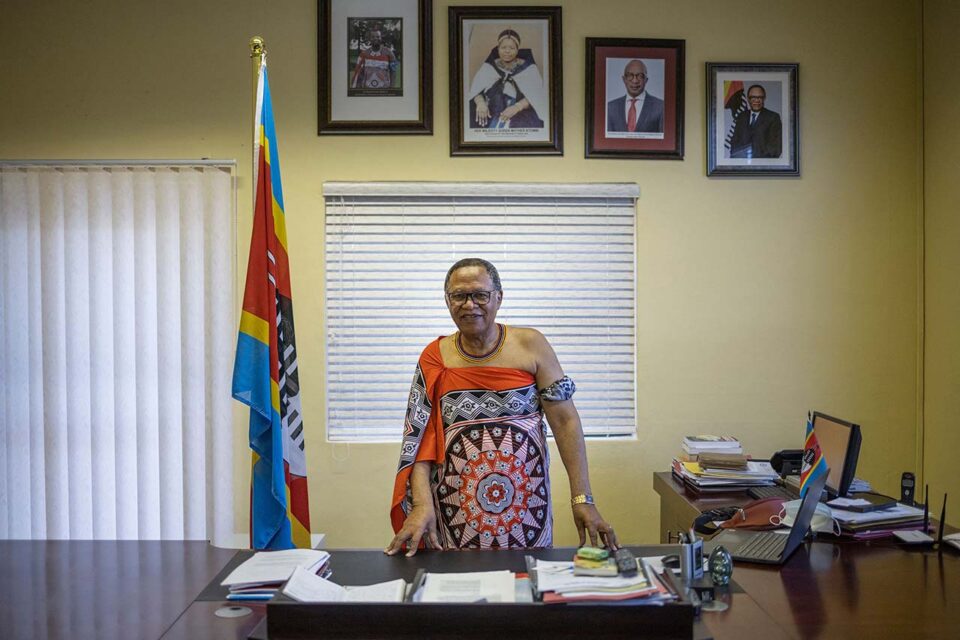
Lukhele’s family members were also flagged for suspicious transactions in which he was involved: They received large electronic payments from him that they would immediately withdraw in cash. In one instance, FNB reported that one of Lukhele’s wives received “numerous” payments from accounts connected to Lukhele that “were then withdrawn in full almost immediately” and that “at one-point E1,000,000.00 [1 million Eswatini emalangeni, or about $57,000] was withdrawn via teller”.
FNB also reported that in August 2020, after receiving funds from XGM — the South African company associated with Lukhele and Mngomezulu — Lukhele’s brother Thulani “was adamant that he withdraws the funds in cash” and specifically requested South African rands. According to FNB, Thulani “ruled out the option of doing a bank transfer … instead of handling so much cash.” The bank noted that “the source of funds … is not clear.”
Powell told ICIJ that “When there are large, rounded-off amounts, it’s not indicative of normal business transactions. Normal business transactions are going to involve random figures.” Without commenting specifically on the Lukhele transactions, he added that it is a red flag for money laundering when “large, round numbers come in and are immediately withdrawn for cash.”
The EFIU also noted that Lukhele spent about $224,000 on vehicles in Eswatini and South Africa using funds from the church’s account. His flashy cars have been a feature of local news reports.
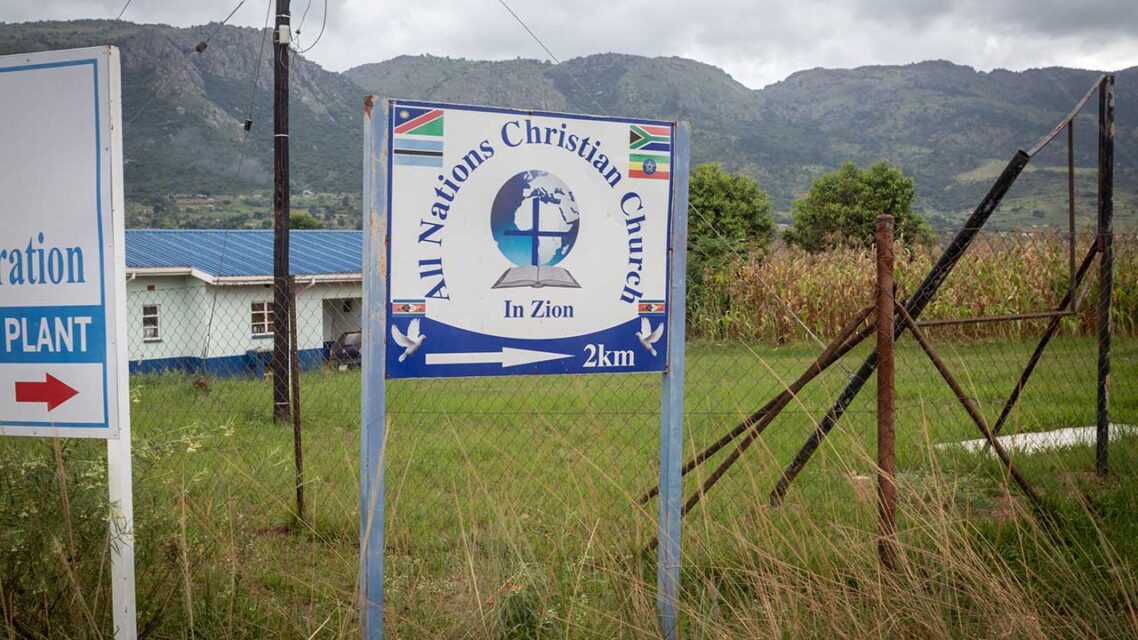
But why would large sums of money from the ANC be funneled through the accounts of a church leader in Eswatini in the first place? The EFIU sketched out three possible scenarios for the suspicious transactions it flagged: The first was that Lukhele was an accomplice, together with ANC CFO Mahlalela and Mngomezulu, in the looting of ANC funds and that they were “concealing the funds” through property in the kingdom. The second was that “Lukhele might be [bribing] the political exposed persons [sic], pastors, gospel artists and general public who are beneficiaries of the funds to gain support, power and influence in whatever agenda he is pursuing with his accomplices.” And the third scenario was that if Mahlalela was “acting on behalf of the political party,” that meant the ANC was “involved in concealing or hiding the funds in Eswatini using [Lukhele].”
Feinstein, the former ANC member of Parliament, told ICIJ that corruption has “seeped into” the party. Zuma’s term as president, from 2009 to 2018, was defined by “extreme corruption” that resulted in South Africa becoming “systemically corrupt,” he said.
On Monday, Zuma — now heading a new political party challenging the ANC — was disqualified by South Africa’s constitutional court from running for a seat in parliament in the upcoming elections based on a prior criminal conviction
The suspicious ANC-linked transactions involving Lukhele and Mngomezulu were serious enough that Eswatini’s police and the country’s Anti-Corruption Commission (ACC) became involved.
Over the past two centuries, the tiny kingdom of Eswatini has shifted and evolved — and even changed its name — but one constant has remained in place: the monarchy.
Through the 18th and 19th centuries, the country formerly known as Swaziland expanded and contracted its borders, rejected a growing European presence, then came under the control of South Africa and later the British Empire.
The southern African country remained under British rule until the kingdom gained independence in 1968. The Swazi monarchy — which had remained in a diminished capacity — repealed the British-designed constitution and restored the monarchy’s absolute power.
The current king, Mswati III, took the throne in 1986 at age 18. Now in his fifties, he’s Africa’s last absolute monarch. The size of the royal family is a secret, but Mswati III reportedly has 11 wives and more than 30 children. The family has earned a reputation for its luxurious lifestyle, despite high poverty rates and unemployment in the tiny country it rules.
Pro-democracy protests erupted in 2011, amid a dire economic crisis as citizens pushed back against stifled freedoms, and have continued to simmer through the past decade. In 2018, the king unilaterally changed the country’s name from Swaziland — a name bestowed by the British — to Eswatini, which means “land of the Swazis.”
Severing ties
By February 2019, the Eswatini police had compiled a profile of Lukhele’s assets, according to a police report, which read: “Subject was interviewed whereby conflicting statements regarding the sources of his funds was [sic] made. Efforts are underway in establishing the underlying unlawful activities giving rise to the financial disposition of the subject. Active investigation is in progress.”
In March 2019, the EFIU compiled a report on Lukhele addressed to the Anti-Corruption Commission. A year later, the EFIU circulated another report to the ACC outlining its suspicion that Mngomezulu “might have been using his personal account to receive suspected illicit funds, a majority of which were then transferred to All Nations Church FNB Account.”
The ACC is focused on “preventing and combating all forms of corruption in the Kingdom of Eswatini, in both public and private sectors,” according to its website. Its independence and effectiveness, however, have often been called into question by the public at large, and its commissioner and deputy commissioner are appointed by the king.
A more immediate problem for Lukhele, though, was the fact that his bank, FNB, had become so uncomfortable with the reputational risks posed by its client that it had begun terminating their relationship in 2020, according to EFIU documents and internal correspondence.
Soon, another of Lukhele’s banks, South Africa-based Nedbank, was also growing concerned. (All Nations Christian Church was also a Nedbank client.) In a report it submitted to the EFIU, the bank suggested that he controlled some accounts through proxies. In February 2022 Nedbank flagged large cash withdrawals in which its client was suspected of “moving from ATM to ATM in what seems to be an effort to avoid reporting thresholds.” The bank concluded in its report that Lukhele might have been attempting to launder money.
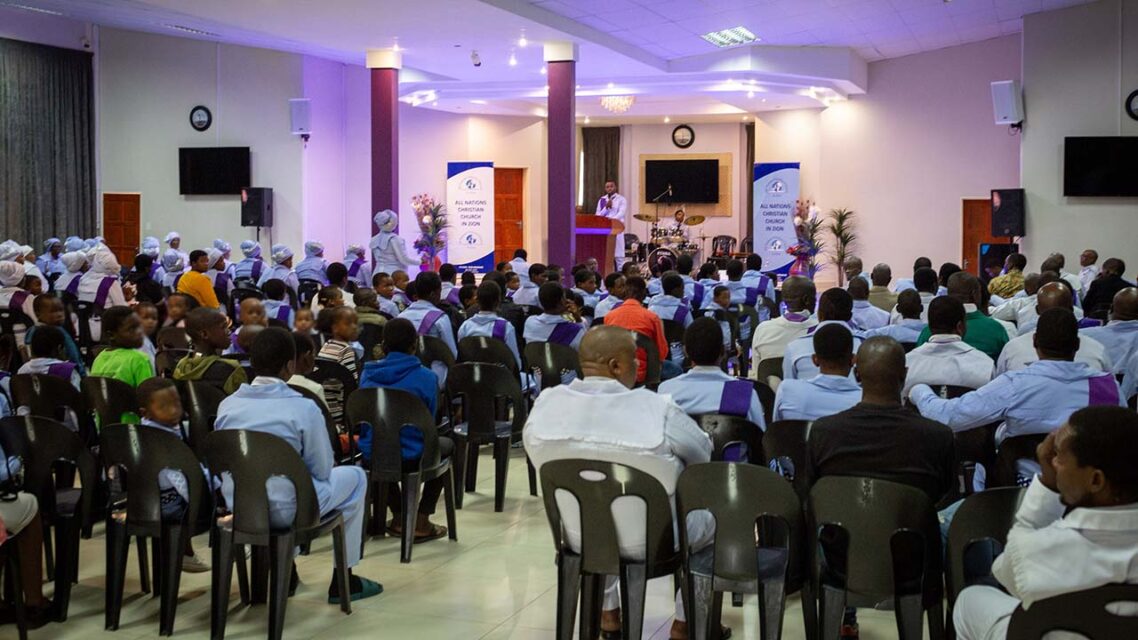
By May 2022, Nedbank, too, was trying to sever ties with Lukhele, stating in a letter to the EFIU: “in view of the client’s transactional activity and the absence of sufficient reasons to justify the noted activity in the accounts, it cannot continue its relationship with the client.
EFIU documents show that the kingdom’s Anti-Corruption Commission formally launched an investigation into Lukhele, but as of July 2022 the matter was “still under investigation.”
Tebogo Tshwane is an investigative journalist with the amaBhungane Centre for Investigative Journalism in South Africa.
Contributors: Miguel Fiandor, Jelena Cosic, Jesús Escudero, Denise Ajiri, Karrie Kehoe, Delphine Reuter (ICIJ)

